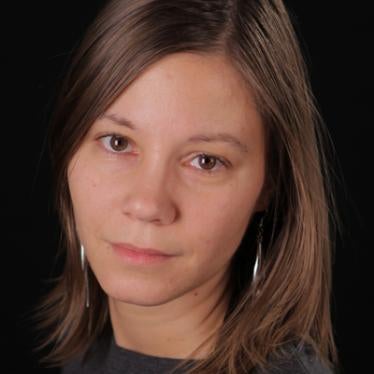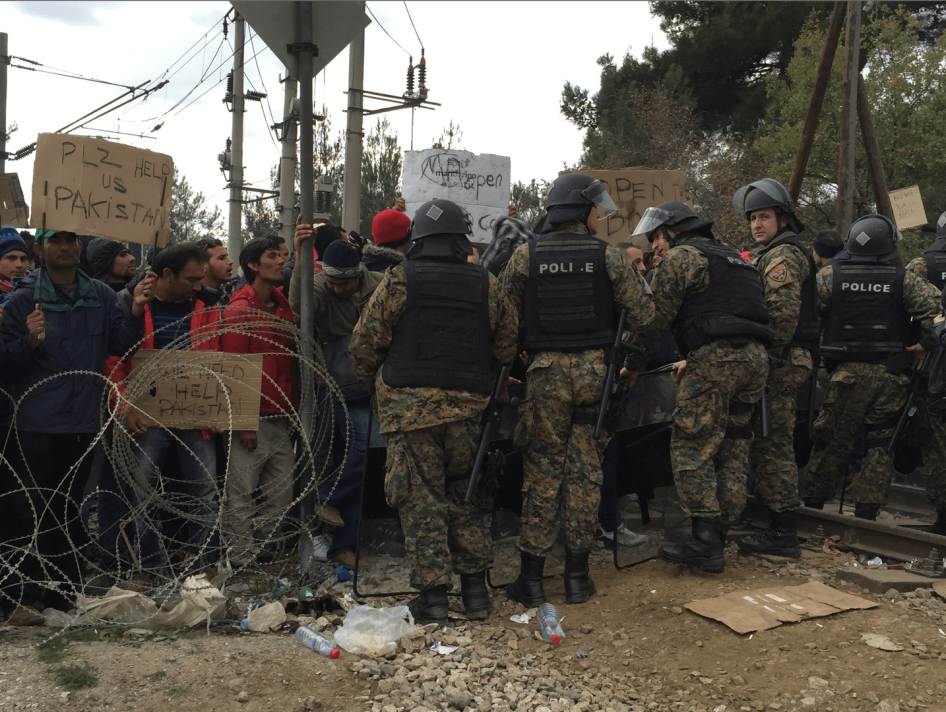“I could choose between life and death. I chose to live.”
I met Jahan from Iran (not his real name), a man in his 30s, at the Greek-Macedonian border this week. He told me he had been stuck on the Greek side for four days because of the border closures on the Western Balkan route beginning November 17 that bar everyone except Syrians, Afghans, and Iraqis from entering.
Thousands of others, including people from Pakistan, Sudan, Sri Lanka, Morocco, Liberia, Palestine, Nigeria, and the Ivory Coast, have been stuck on the Greek side of the border in a makeshift camp in Idomeni that is not suitable for stays longer than a few hours.
Jahan told me that he was forced to flee Iran because he had converted to Christianity while living in Ukraine. After returning to Iran a few months ago, he said authorities arrested him and sent him to Evin prison, a notorious torture site.
“They tortured me,” he said. “They held me for two weeks and every day they cut my throat with a knife…. If I go back to Iran, they will kill me.” He showed me what appeared to be the marks of the fresh cuts across his throat.
I met many people at the Macedonia border with similar stories of persecution who were not allowed to present their claims or continue on their way because they were the wrong nationality.
Authorities in Western Balkans justify the border closures because of restrictions imposed by the next country in the chain and to limit large numbers entering Europe by excluding “economic migrants.” But that blanket presumption is unwarranted. It ignores the fact that a person’s refugee claim cannot be dismissed without an individual assessment, a process that is not possible if entire nationalities are excluded.
It also ignores the fact that many people from excluded countries have valid claims. In the second quarter of 2015, the average European Union recognition rate for Iranians seeking protection was 67 percent, Sudanese 58 percent, and for Pakistanis and Sri Lankans 28 percent. While some may be economic migrants, that should not preclude others with protection needs seeking asylum.
Segregation based on nationality runs counter to the right to seek asylum set out in the Universal Declaration of Human Rights; the principle of nondiscrimination under the European Convention on Human Rights; and the right to asylum under the EU Charter of Fundamental Rights.
It also risks trapping people at European borders that lack adequate facilities, especially with winter looming. Heated tents are available at the Idomeni site which can accommodate 2000 people, but there are no beds or cots. With rats, a lack of sufficient warm clothing, and the prospect that it could quickly become grossly overcrowded, the Idomeni site isn’t suited for long stays. The United Nations refugee agency, UNHCR, has warned of an urgent impending humanitarian problem.
The moves show the contradictions in the EU-Western Balkan migration action plan agreed to in October. Countries on the Western Balkans route agreed to coordinate to improve reception conditions and assistance, but also pushed states to prevent onward movement of asylum seekers and migrants.
Coordination efforts should ensure that people are treated humanely and that their right to seek asylum is respected. Otherwise the crisis will only deepen.









